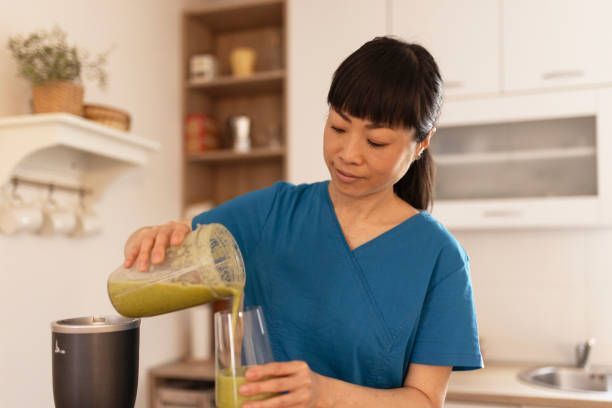10 Essential Skills Every Home Health Aide Should Have
10 Essential Skills Every Home Health Aide Should Have
At 7 Day Home Care, we understand that home health aides play a crucial role in ensuring the well-being, safety, and comfort of seniors who are aging at home. These skilled professionals bring a unique blend of medical knowledge, practical caregiving skills, and compassionate support that makes a significant difference in the lives of both clients and their families. Home health aides at 7 Day Home Care are trained to provide not only essential daily assistance but also personalized care that promotes physical health, emotional well-being, and overall independence. They possess a variety of essential skills, including expertise in personal hygiene assistance, basic medical care, mobility support, and effective communication. These competencies are vital for meeting each client's unique needs and fostering a safe, comfortable, and positive home environment. In this article, we’ll explore 10 essential skills that make home health aides an invaluable part of the caregiving team, highlighting how these abilities ensure high-quality care and meaningful connections with the seniors they serve. 7 Day Home Care is licensed by the New York State Department of Health to provide home care services in Manhattan, Queens, Brooklyn, Nassau County, and Suffolk County, New York. To learn more about our home care services, please call 516-408-0034.

Are You Searching for the Best Home Health Aides Near Me?
As the demand for quality in-home care continues to grow, it’s important for families and individuals seeking these services to understand what makes a great home health aide (HHA). Families deserve caregivers who bring a unique blend of compassion, professionalism, and practical skills to the job. This article explores the essential skills and qualities that define an exceptional home health aide, helping families make informed choices for their loved ones.
1. Compassion and Empathy
At the heart of every successful HHA lies a deep sense of compassion and empathy. These qualities allow caregivers to connect with their clients on a personal level, making clients feel valued, understood, and safe. The ability to empathize enables an HHA to understand both the physical and emotional needs of their clients, significantly enhancing their quality of life.
For example, a compassionate HHA might engage clients by discussing their past, memories, or interests, helping them feel more engaged and less isolated. Empathy also helps HHAs be more sensitive to a client’s pain, discomfort, or frustration, especially when dealing with chronic illnesses or disabilities. This sensitivity fosters trust and strengthens the caregiver-client bond, making the care experience more comfortable and meaningful for both.
2. Effective Communication Skills
Effective communication is essential for any HHA. Home health aides must communicate clearly and professionally with clients, their families, and other healthcare providers. This includes active listening, thoughtful responses, and regular updates to family members about any changes in the client’s condition.
An HHA who communicates effectively helps ensure that all parties involved in the client’s care are on the same page, which can prevent misunderstandings and build trust. For example, keeping family members informed about medication routines, daily activities, or any noticeable health changes can offer peace of mind and reassurance to loved ones, knowing their family member is in good hands.
3. Physical Strength and Stamina
The role of a home health aide can be physically demanding, as HHAs often assist clients with mobility, such as transferring them from bed to wheelchair, supporting them with bathing, and helping them navigate daily movements. For these tasks, physical strength and stamina are crucial.
For example, when assisting a client with limited mobility, an HHA’s strength is essential to ensure safe transfers, reducing the risk of injury to both the client and the aide. Stamina is equally important, enabling HHAs to provide consistent, high-quality care throughout their shifts, especially when clients require continuous assistance.
4. Time Management and Organization
Time management and organizational skills are vital for HHAs who oversee a client’s daily routines. Responsibilities often include meal preparation, medication administration, hygiene routines, and social activities, all of which require careful scheduling.
An organized HHA keeps each task on schedule, ensuring that clients receive their meals and medications on time. This skill also allows HHAs to manage their time efficiently, providing high-quality care that respects both the client’s and family’s expectations. By balancing multiple tasks, an organized HHA ensures that clients receive comprehensive, well-coordinated care.
5. Problem-Solving Skills
Problem-solving is a critical skill for HHAs, who frequently encounter unexpected situations. Whether it’s a sudden change in a client’s health, a minor household issue, or a new caregiving challenge, HHAs must think quickly and stay calm.
For instance, if a client displays unusual symptoms, a skilled HHA will assess the situation, provide immediate comfort, and know when to call healthcare professionals for further assistance. Effective problem-solving prevents minor issues from escalating, ensuring that clients remain comfortable and safe under their HHA’s care.
6. Medical Knowledge and Technical Skills
Home health aides need a basic understanding of medical terms, procedures, and health conditions, which enables them to monitor clients’ health effectively, recognize early signs of potential issues, and follow healthcare protocols.
For example, an HHA should know how to measure vital signs like blood pressure, pulse, and temperature, as well as identify symptoms of common health issues. Recognizing health changes early allows HHAs to report promptly to family members or healthcare providers, enabling timely interventions that may significantly impact the client’s health and well-being.
7. Patience and Flexibility
Working as an HHA requires immense patience and adaptability. Clients often have specific needs that may vary from day to day, requiring caregivers to be flexible and responsive without showing frustration.
For instance, clients with cognitive impairments, such as those with dementia, may experience confusion, mood swings, or repetitive behaviors. A patient HHA responds to these behaviors calmly, creating a soothing environment and adjusting routines as necessary to maintain the client’s comfort and dignity. This flexibility helps clients feel understood and supported, building trust and encouraging a positive caregiver-client relationship.
8. Respect for Client Dignity and Privacy
Respecting a client’s dignity and privacy is essential in maintaining their emotional well-being and self-esteem. Clients are often vulnerable due to age, illness, or disability, and an HHA must uphold their right to privacy.
For example, by maintaining discretion during personal care tasks such as bathing, an HHA helps clients feel respected and valued. This dignified approach fosters a trusting, comfortable environment, allowing clients to feel secure in their care.
9. Attention to Detail
Attention to detail is crucial for HHAs, who are responsible for tasks that may seem minor but are critical to a client’s overall health and comfort. Monitoring medication dosages, tracking health changes, and adhering to daily routines all require careful attention.
For example, a detail-oriented HHA will notice subtle changes in a client’s behavior, appetite, or skin condition—potential indicators of health issues that might otherwise go unnoticed. Noticing these details allows for early interventions, helping prevent more serious health complications and ensuring the client’s well-being.
10. Cultural Competency
With the increasing diversity of today’s population, cultural competency has become a vital skill for HHAs. Understanding and respecting clients’ cultural backgrounds allows HHAs to create a more inclusive and comfortable environment for everyone.
For instance, some clients may have dietary preferences, religious practices, or social customs based on their culture. An HHA who respects and adapts to these preferences creates a more positive caregiving experience, fostering mutual respect and understanding. Cultural competency ultimately enhances the quality of care, making clients feel seen, respected, and valued.
The skills and qualities listed here collectively define a skilled, professional, and compassionate home health aide. From compassion and communication to problem-solving, medical knowledge, and cultural competency, each skill plays a critical role in providing exceptional care. When families seek an HHA, these qualities should be top of mind to ensure the best care for their loved ones.
At 7 Day Home Care, our team of certified professionals is dedicated to delivering top-notch, client-centered care. Contact us today to learn more about our highly skilled home health aides, who are committed to enhancing the comfort, dignity, and well-being of every client we serve.
Brian Callahan
7 Day Home Care










